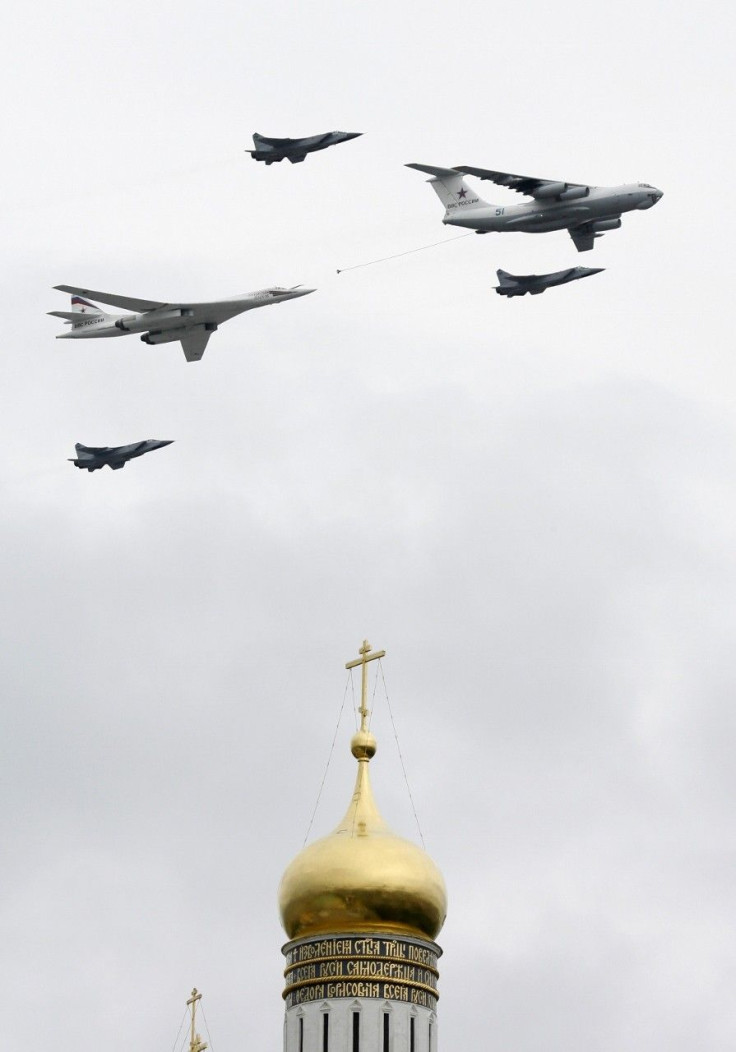Russia Dismisses US Concerns Over Russian Bombers Refuelling In Vietnam; US To Send Armoured Vehicles Through Europe

The United States has raised concerns over Russia’s use of a base in Vietnam that previously belonged to the U.S. Russian bombers are using the base as a refuelling station as they conduct flights around U.S. territory in the Pacific.
The U.S. had requested Vietnam to stop letting Russia use the Cam Ranh Bay for tanker aircraft to refuel Russian nuclear-capable bombers, reports Reuters. The Russian Defence Ministry said it was “strange” to hear such statements from the representatives of a country whose military are “permanently stationed” in several Asia-Pacific nations.
Russia rejected U.S. concerns over the refuelling of Russian bombers from Vietnam. The Russian Defence Ministry said the U.S. statement that the move could lead to heightened regional tension was “puzzling.” The ministry explained that Russia’s bomber flights and cooperation with Vietnam were in strict observance of international norms and bilateral agreements. It claimed that the flights were not directed against any country and posed no threat to peace and stability in the region.
Gen. Vincent Brooks, U.S. army commander in the Pacific, had told Reuters that Russian bombers had conducted flights as a “provocation” in the Asia-Pacific region including around the U.S. territory of Guam where major U.S. military bases are located. In a statement released last Mar. 12, the U.S. had declared it did not want Russia to have access to Vietnam’s Cam Ranh Bay. “We have urged Vietnamese officials to ensure that Russia is not able to use its access to Cam Ranh Bay to conduct activities that could raise tensions in the region,” said U.S. State Department spokeswoman Jen Psaki in a news conference.
TASS news agency had quoted Konstantin Vnukov, Russia’s ambassador to Vietnam, saying that Russia and Vietnam were independent sovereign states and did not need to hear instructions from anyone. He added that “we do not intend to listen” to the requirements of the U.S. government. During the Vietnam War, it was Moscow that supported Hanoi against the U.S. Russia and Vietnam had become long-time allies since the war ended in 1975.
U.S. officials have been careful not to call out Vietnam for allowing the refuelling of Russian bombers on its base. Washington said it still respects Vietnam’s right to enter into agreements with other nations. The U.S. has been interested in securing greater access to the Vietnam base as part of strategic plans to counter China’s strength.
Meanwhile, the U.S. military will soon be deploying armoured Stryker vehicles in a convoy through six countries in Europe amid continued Russian incursions in eastern Ukraine, reports Stars and Stripes. U.S. Army Europe spokesman Lt. Col. Craig Childs said in a statement that the convoy for armored vehicles will be a “demonstration of U.S. commitment” to NATO member countries.
The 1,100-mile convoy will also be a show of solidarity among NATO allies and their capability to move freely across borders. The convoy is the latest in displays of strength of the U.S. and NATO under Operation Atlantic Resolve.
To report problems or leave feedback on this article, contact: r.su@ibtimes.com.au






